Access Resource Kit (ARK) - Disability Services Commission
Access Resource Kit (ARK) - Disability Services Commission
Access Resource Kit (ARK) - Disability Services Commission
Create successful ePaper yourself
Turn your PDF publications into a flip-book with our unique Google optimized e-Paper software.
AIMS<br />
♦ To identify the barriers that people with disabilities experience when accessing public<br />
information.<br />
♦ To determine ways of improving the accessibility of public information for people with<br />
disabilities.<br />
EXAMPLES<br />
Examples of the types of information provided by public authorities which all members of<br />
the community, including people with disabilities, may need to access include:<br />
♦ timetables<br />
♦ programs<br />
♦ council minutes<br />
♦ annual reports<br />
♦ signs<br />
♦ maps<br />
♦ directories<br />
♦ library books<br />
♦ brochures<br />
♦ accounts<br />
♦ web sites.<br />
This checklist has been developed to assist State Government agencies and Local<br />
Governments gauge how accessible their information is to people with disabilities.<br />
REASONS FOR INFORMATION CHECKLISTS<br />
People with disabilities frequently experience difficulty in accessing public information.<br />
The types of disability that impact on an individual’s ability to access information include<br />
hearing loss or deafness, impaired vision or blindness or disabilities that affect the ability to<br />
learn or think (such as intellectual disability or psychiatric illness). Many communication<br />
difficulties can be avoided. It is recommended that a range of communication options are<br />
provided so that individuals can use the communication method that best suits their needs.<br />
Many communication difficulties can be overcome if written information is provided using<br />
clear and concise language in a font style and size that is easy to read. For people who<br />
have low vision or who are blind, it is also important to have information freely available on<br />
request in alternative formats such as audio cassette, large print, computer disc and<br />
Braille.<br />
There are a variety of communication techniques that can be used to assist people who<br />
have a hearing impairment or who are deaf. Better Hearing <strong>Kit</strong>s on public counters are<br />
valuable for informing visitors that staff know how to speak to someone who experiences<br />
difficulty hearing. The provision of audio loops at public meetings will enable people who<br />
Information Checklist (Aust Standards updated February 2011) 3.61



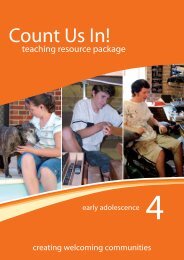
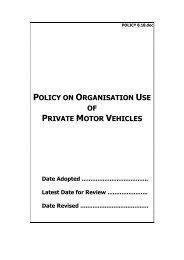
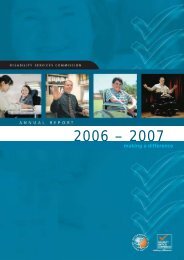

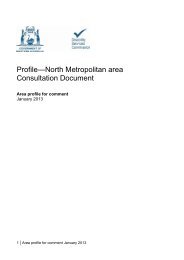
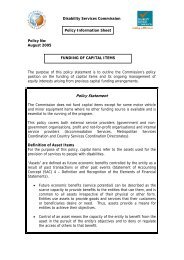
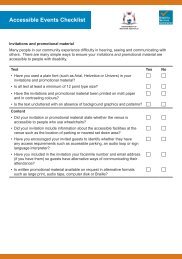
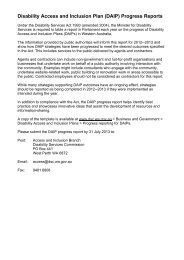
![Heerarka Adeegyada Naafada [PDF 102 kB] - Disability Services ...](https://img.yumpu.com/22096139/1/184x260/heerarka-adeegyada-naafada-pdf-102-kb-disability-services-.jpg?quality=85)
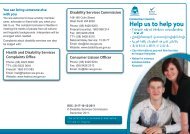
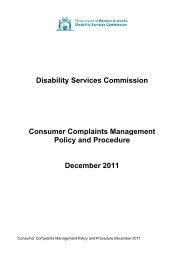
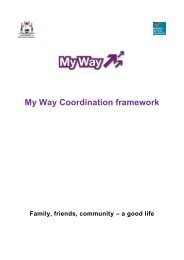
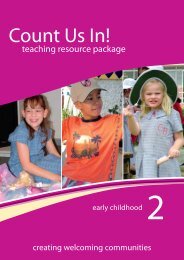
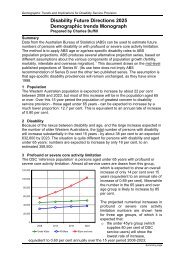
![معايير خدمات الإعاقة [PDF 297 kB] - Disability Services Commission](https://img.yumpu.com/22096120/1/184x260/-pdf-297-kb-disability-services-commission.jpg?quality=85)